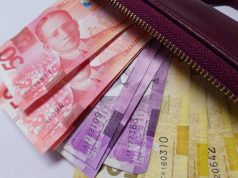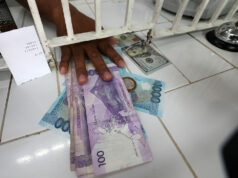BSP, Bank Indonesia may test cross-border retail payment linkages
THE BANGKO SENTRAL ng Pilipinas (BSP) and Bank Indonesia (BI) may consider going into a joint regulatory sandbox to test cross-border retail payment linkages following the central banks’ recently signed memorandum of understanding (MoU), according to BSP Governor Benjamin E. Diokno.
“The BSP and BI have yet to consider specific projects under the MoU,” Mr. Diokno said in an e-mailed response to BusinessWorld on Tuesday.
“However, moving forward, the agreement may be expected to facilitate initiatives between the two central banks to ease information exchange on payment systems and financial innovation, promote participation in a joint regulatory sandbox testing or establish of cross-border retail payment linkages, and introduce fintech (financial technology) businesses to each other’s jurisdictions, among others.”
The two central banks inked an MoU on Feb. 1 with the intent to create a framework of closer cooperation to help attain a “more secure, efficient and reliable payment system, and to promote digital financial innovation.
The pact came after a bilateral meeting between BSP and BI which tackled advances done in the digital economy, central banking, infrastructure financing using market instruments, and sustainable financing frameworks done by both sides.
Meanwhile, BSP Deputy Governor Chuchi G. Fonacier said the BI highlighted the Indonesia Payment System (IPS) Blueprint 2025, which is a framework they have adopted in response to the digital transformation occurring in their national payment system.
“The blueprint includes open banking standards, retail payment system, market infrastructure, data management, and regulatory, licensing and supervisory framework,” Ms. Fonacier said in an e-mailed response.
In August 2019, Bank Indonesia launched its QR Code Indonesian Standard as part of the blueprint.
“Ultimately, the IPS Blueprint 2025 should challenge the BSP and Philippine banks to continue improving synergies, embracing transformation, and supporting innovation, as these were key lessons that formed the BI’s policy action,” Ms. Fonacier said.
For its part, the BSP launched the National Retail Payments System in 2015 where electronic fund transfer schemes like the PESONet and InstaPay are part of.
So far, the volume of e-payments in the country have risen to comprise 10% of total transactions in 2018 from a mere 1% in 2013, according to a study by United Nations-based Better than Cash Alliance. — Luz Wendy T. Noble



